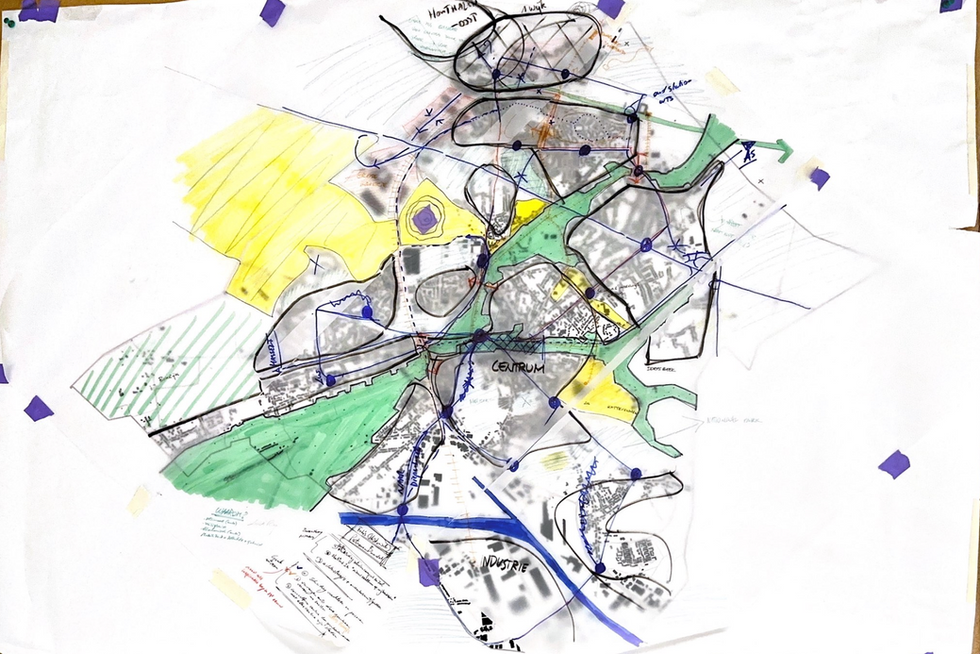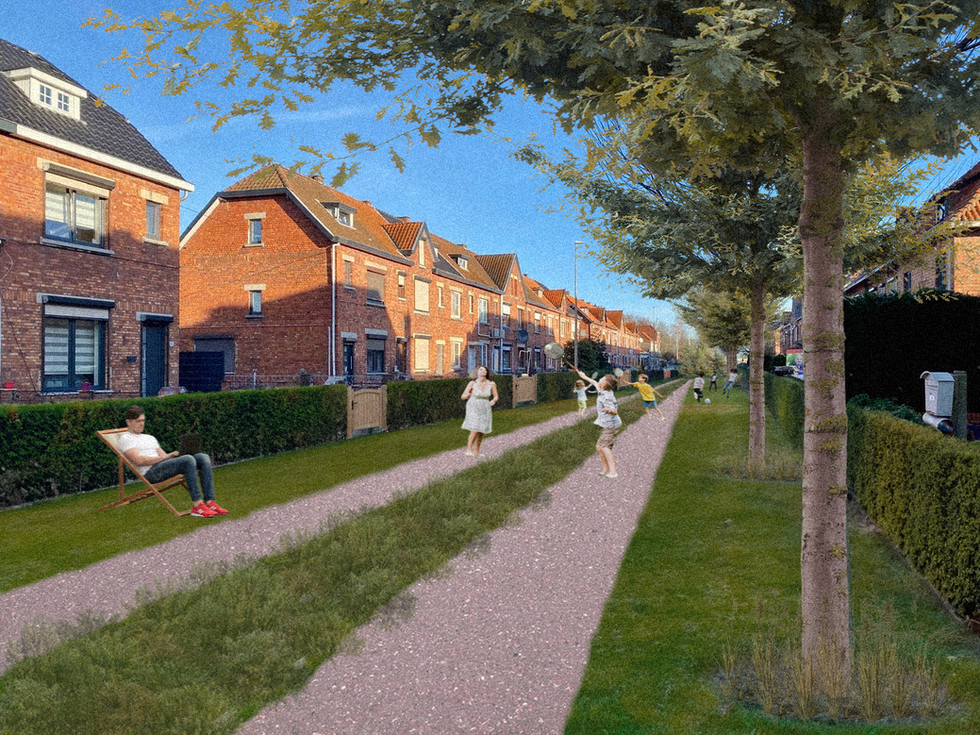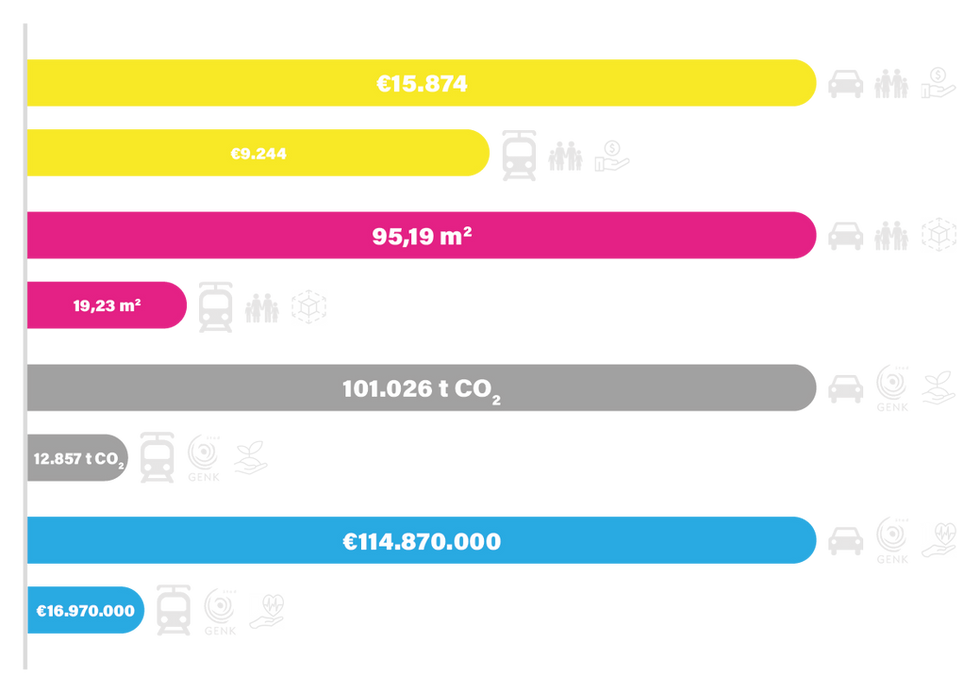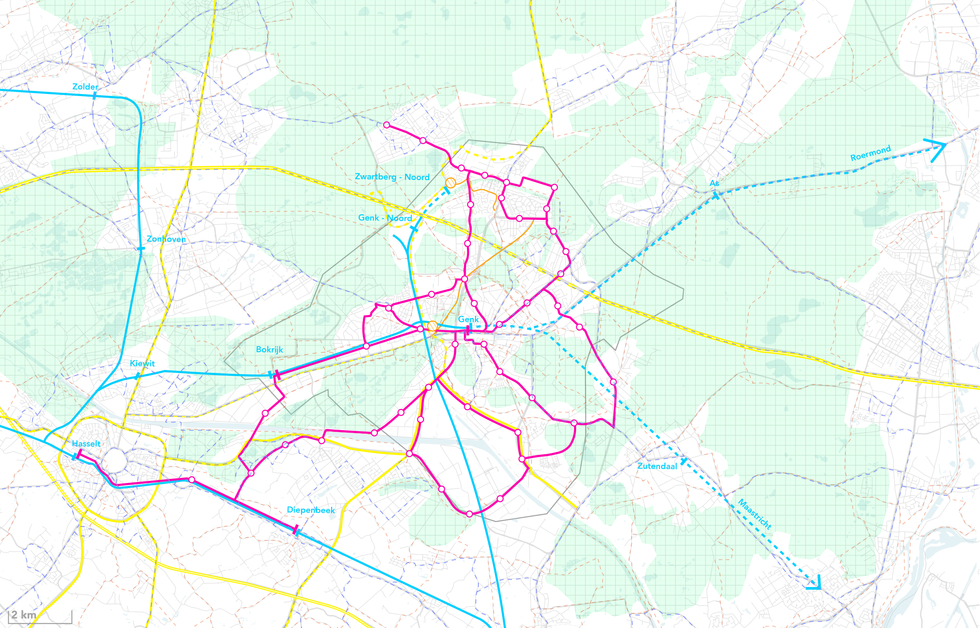Create Your First Project
Start adding your projects to your portfolio. Click on "Manage Projects" to get started
Klavertje Genk
University
UHasselt - Hasselt University
Project type
Masterplan
Location
Genk | BE
Date
June 2025
Klavertje Genk voor een duurzaam transport: Rethinking Mobility and Urban Life
Project Brief:
This work was developed in the context of our graduation project at UHasselt (2024–2025) as the first collective step of the design process. Working in groups, we were asked to formulate a strategic masterplan for the city of Genk from an urban planning perspective. The fictive masterplan, titled Klavertje Genk, later provided the framework within which each student would select a site for the individual graduation project. The challenge was to rethink mobility and spatial planning in Genk, a city historically shaped by coal mining, industrial growth, and car dependency, and to propose a future-oriented vision focused on sustainability and livability.
Design Process:
Our approach combined historical research with quantitative analysis. We studied the evolution of Genk from a small agricultural village to a fragmented mining town, and eventually into an “automobile city.” We then assessed the negative impacts of car dominance. To substantiate our argument, we developed detailed calculations on the themes of cost, space, environment, and health. These estimations, based on as many relevant factors as possible, demonstrated the immense potential gains of reducing car use:
41.8% lower annual mobility costs for a family of four when replacing two cars with public transport subscriptions.
79.8% less household space lost to mobility, reclaiming areas previously occupied by roads, driveways, and garages.
87.3% reduction in CO₂ emissions from mobility, by eliminating fossil fuel dependency and vehicle production impacts.
85.2% fewer healthcare costs linked to traffic, thanks to fewer accidents, cleaner air, and reduced noise pollution.
These insights reinforced our belief that a sustainable shift is both urgent and achievable. Inspired by the historical buurtspoorweg (local tram network) of the 1930s, we reintroduced and expanded this tram loop as the backbone of a new, resilient mobility model.
Our Proposal:
The masterplan rests on two main pillars: ecological connectivity and car-light mobility. We designed a tram network along existing road infrastructures, connecting cultural, educational, and recreational hubs such as C-mine, Thorpark, Bokrijk, LaBiomista, the Diepenbeek university campus, and the Collegelaan. With stops located within 500 m of each neighborhood, the tram provides inclusive and efficient access across the city. To reduce through-traffic, we reorganized road hierarchies: highways are maintained for regional connections, but residential areas are shielded from car pressure. On a larger scale, extending the rail network towards Maastricht and Roermond transforms Genk into a true cross-border mobility hub. At the same time, fragmented green spaces such as the Stiemerbeekvallei are reconnected into a coherent ecological framework, turning Genk into a city where nature and mobility reinforce each other.
Benefits:
-Gradually reduces car dependency while ensuring accessibility
-Delivers measurable social, ecological, and economic gains across cost, space, emissions, and health
-Reclaims urban land for people-oriented uses and green corridors
-Strengthens Genk’s regional position with improved tram and train networks
-Offers a resilient urban model that honors history while preparing for the future
Klavertje Genk is both a critique of car-dominated urbanism and a roadmap for sustainable transformation. By integrating hard data with design strategies, the project demonstrates that moving beyond the automobile can drastically improve affordability, health, and livability. Genk becomes a city that embraces its past, restores its green heritage, and steps confidently into a more resilient future.























